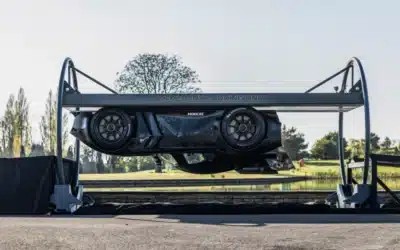
In a remarkable showing for the second quarter of 2024, BMW reinforced its commanding position in the luxury electric vehicle (EV) market, leaving competitors such as Porsche, Audi, and Mercedes in its wake. The Munich-based automaker reported a substantial increase in its EV sales globally, highlighting a robust demand for its electrified models.
BMW’s electric vehicle sales surged by an impressive 22% in Q2 of 2024, contributing to nearly 108,000 EV deliveries in the quarter alone. This brings BMW Group’s total EV sales up to that point in the year to 190,622 units, marking a 24.6% increase compared to the same period last year.
Breaking down the figures, the BMW brand itself has seen a significant 34% rise in EV sales throughout the first half of 2024. During these six months, BMW has delivered 179,557 fully electric vehicles, leading to an overall brand sales growth of 2.3% in the first half of the year.
In The Meantime, Others Are Suffering
In stark contrast, Porsche recorded a severe downturn in its EV sales. The company experienced a 51% drop in Taycan deliveries during the same period. This decline coincides with Porsche’s introduction of the updated 2025 Taycan and the new Macan Electric, suggesting that the transition to new models may have temporarily impacted sales figures.
Mercedes-Benz is also grappling with a downturn in its electric vehicle segment. The luxury carmaker saw EV sales dip by 25%, with just 45,800 units sold in the second quarter of 2024. This decline underscores the growing challenges Mercedes faces in keeping pace with the rapidly evolving market.
Audi, another prominent player in the luxury EV market, has faced its own challenges. The company’s EV sales remained relatively flat in Q2, reflecting a sluggish market response to its offerings. Particularly affected are the Q8 e-tron and Sportback models, which saw such low demand that Volkswagen is considering closing its Brussels plant, where these models are manufactured. That being said, Audi has recently announced a raft of new vehicles, of which many are EVs. That may start the fight back, but it remains to be seen.
BMW’s forward momentum is bolstered by the introduction of new EV models. The automaker is rolling out its i4 and iX2 crossover, which are expected to attract a broad range of buyers. Further down the line, BMW is setting its sights on its new Neue Klasse EVs, which include the upcoming 1 Series EV. These next-generation vehicles are anticipated to strengthen BMW’s lead in the sector, targeting a larger and more diverse consumer base.

The BMW iX2 crossover is being rolled out.
Powers of Persuasion
The company is using some interesting persuasion tactics to get its existing ICE drivers to consider switching to electric models. It has launched a new feature in its MyBMW App to analyze user driving behavior, helping owners determine if switching to an electric vehicle meets their needs.
The “Electric Vehicle Analysis” function is designed to analyze user driving behavior and suggest whether they might benefit from switching to an EV.
The new tool is available to all owners of the latest BMW models who use the company’s official smartphone app – some 13 million of them according to the company’s announcement. Once activated, it tracks the user’s journeys to evaluate how well an all-electric BMW might fit their driving habits. The aim is to provide a personalized simulation, helping drivers make informed decisions about transitioning from combustion engines to electric power.
The analysis process involves monitoring 200 journeys or up to a distance of 2,000 kilometers (approximately 1,250 miles). The app then assesses how many of these trips could have been covered by an EV without requiring a charging stop, taking into account the real-world fuel economy of the user’s current vehicle. These insights are collected in the “My Trips” section of the app.
“Electric vehicles can already be incorporated perfectly into the daily routine of many customers – it’s just that the majority of them haven’t tried it yet,” says Dirk Wiedmann, Senior Vice President Sales Steering and Strategy, Digitalisation. “Our app’s Electric Vehicle Analysis helps our customers to make an informed judgement in their choice of drive system.”
The app also informs users about nearby charging facilities, such as those found at restaurants, cafes, banks, and supermarkets. Additionally, it features a Charging Wallet, which helps users choose the most affordable charging tariffs available within the network.
While the Electric Vehicle Analysis tool is a significant step towards encouraging EV adoption, it currently lacks the capability to provide a comprehensive financial analysis. Specifically, it cannot calculate when an EV might become more economical in comparison to a traditional petrol or diesel vehicle, including how the cost difference might be offset by savings on fuel over time.
The app is set for future updates that will enhance its capabilities, such as evaluating idle times and long-distance travel needs while providing more precise recommendations based on charging infrastructure and time requirements.















